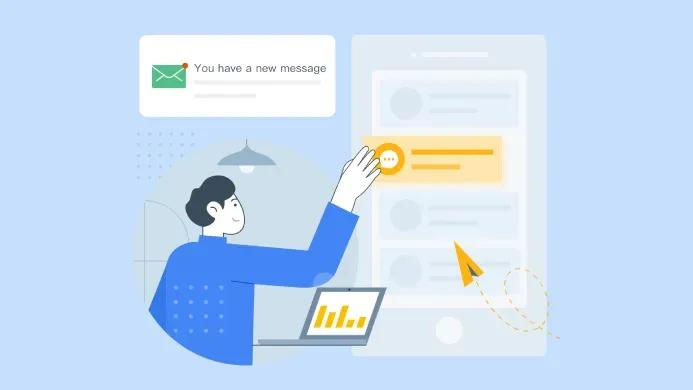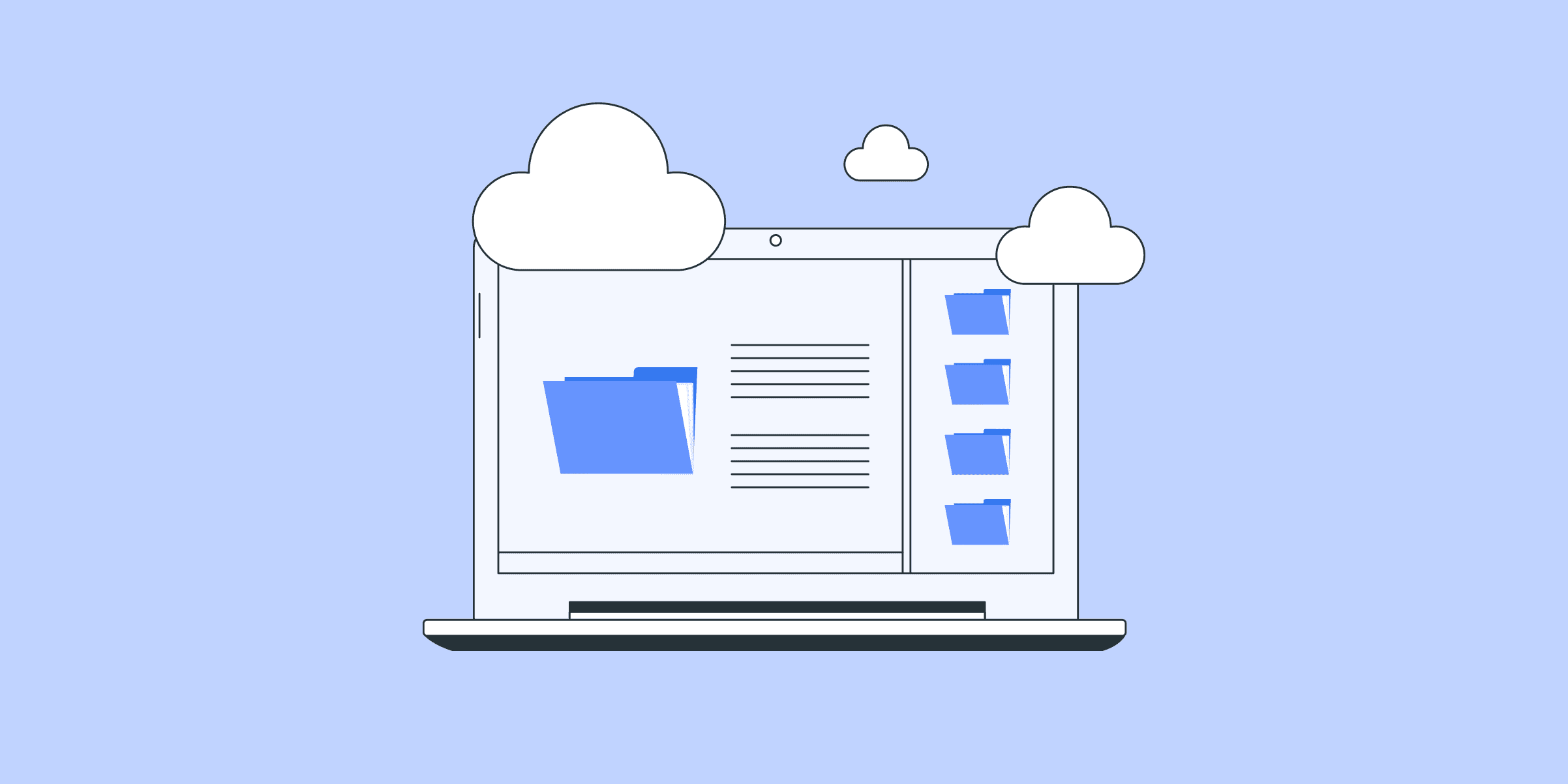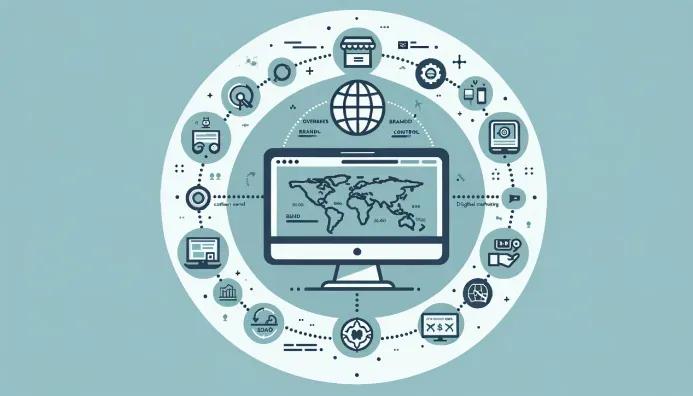
LIKE.TG
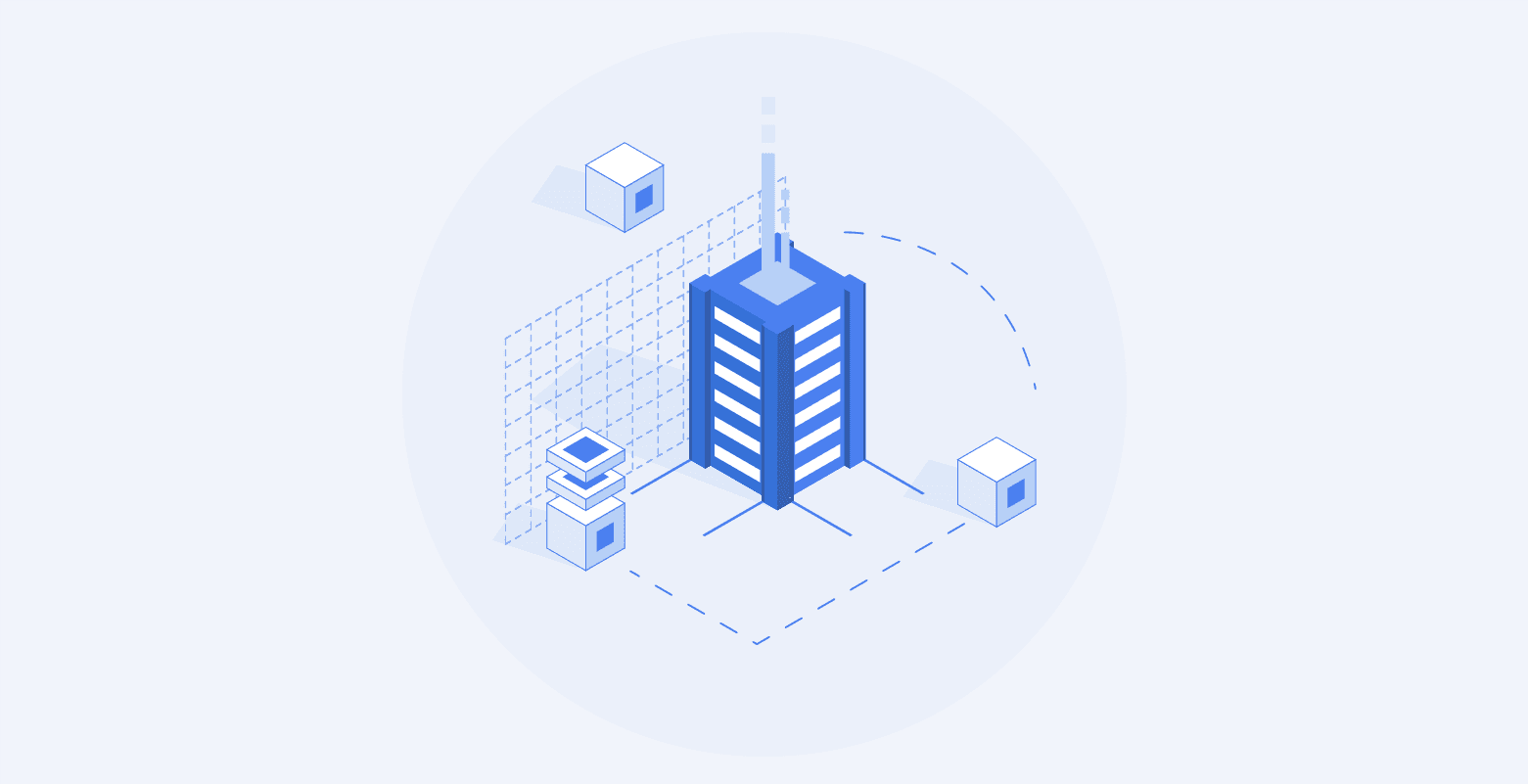
Datacenters vs Residential Proxies: Which is the Better Choice for Your Web Scraping Needs?
Datacenter vs Residential Proxies: What are the Differences?When it comes to web scraping, businesses have two main options for proxy servers: datacenter and residential proxies. Both types of proxies serve different purposes and have their own advantages and disadvantages. In this article, we’ll explore the differences between datacenter and residential proxies and help you determine which one is right for your web scraping needs.Datacenter proxies are IP addresses that are assigned by datacenters, which are large facilities that house computer servers. These proxies are artificially created and are not associated with an internet service provider (ISP) or a physical address. Because datacenter proxies are not associated with a specific location, they can be used to make multiple requests to a website without raising suspicion.Residential proxies, on the other hand, are IP addresses that are assigned to real residential homes. These proxies are provided by ISPs and are associated with a specific physical address. Because they are associated with a residential address, residential proxies appear more legitimate to websites and are less likely to be blocked.So, what are the differences between datacenter and residential proxies?1. Legitimacy: Residential proxies appear more legitimate to websites because they are associated with real residential addresses. Datacenter proxies, on the other hand, have no physical existence and are less likely to be seen as legitimate by websites.2. Speed: Datacenter proxies tend to be faster than residential proxies because they are not associated with a physical location. Residential proxies, on the other hand, may be slower because they are associated with a physical address.3. Cost: Datacenter proxies are typically cheaper than residential proxies because they are artificial and do not require a physical address. Residential proxies, on the other hand, are more expensive because they require the use of a physical address.4. Security: Residential proxies are more secure than datacenter proxies because they are associated with a physical address and a specific ISP. This makes them less likely to be blocked or detected by websites.When it comes to SEO, both datacenter and residential proxies can be beneficial. Datacenter proxies can be used to scrape large amounts of data quickly, while residential proxies can be used to appear more legitimate to search engines. Ultimately, the decision between datacenter and residential proxies will depend on your specific web scraping needs.In conclusion, datacenter and residential proxies serve different purposes and have their own advantages and disadvantages. When choosing between the two, consider factors such as legitimacy, speed, cost, and security. By understanding the differences between datacenter and residential proxies, you can make an informed decision and choose the proxy that is right for your web scraping needs.

Deciphering IP Bans: Expert Insights for Seamless Internet Navigation
In our interconnected digital era, the exchange of information and communication across global networks has become the norm. This shift has led to significant advancements but has also introduced unique challenges, such as Internet Protocol (IP) bans. This article offers an in-depth understanding of IP bans, their origins, impacts, and expert strategies to successfully navigate through them. Decoding IP Bans: What Are They? At its core, an IP ban is a safeguard put in place by servers to block requests originating from a specific IP or a range of IP addresses. Whether enacted by websites, online platforms, or services, the primary intent behind IP bans is to guard their infrastructure against misuse, such as brute force attacks, spamming, or excessive usage. IP bans can be automated—triggered by patterns of abuse detected by the server—or manually implemented by an administrator. The Mechanics of IP Bans IP bans operate on a straightforward principle. Each device connected to the internet possesses a unique identifier known as an IP address, facilitating its communication with other devices. When a server detects an IP address linked with suspicious or malicious activities, it can choose to ban that IP address. Consequently, this ban prevents all incoming communication or requests from the said address. Unraveling the Causes behind IP Bans IP bans are typically a consequence of policy infringements like system manipulation attempts or data breaches. For instance, e-commerce platforms may ban IP addresses linked with multiple account creations to prevent fraudulent transactions. Geographical restrictions can also lead to IP bans when services are unavailable or restricted in certain countries or regions. The Ripple Effects of IP Bans While IP bans serve as a protective measure, they might inadvertently affect innocent users. Shared IP addresses—commonly used by educational institutions, offices, or public Wi-Fi networks—can lead to an IP ban impacting all individuals connected to that network. Alternatively, a user could receive a previously banned dynamic IP address, thereby unintentionally inheriting the ban. Expert Strategies to Circumvent IP Bans Navigating through IP bans might seem daunting, but several effective strategies can help: 1. Contacting the Service Provider: If you suspect your IP has been unjustly banned, reaching out to the service provider, detailing your situation, and requesting a lift of the ban could resolve the issue. 2. Leveraging a Proxy Service: Proxy services, such as LIKE.TG, can disguise your actual IP address by rerouting your internet traffic via a different server, giving you a new IP address and successfully bypassing the ban. 3. Using a Virtual Private Network (VPN): A VPN conceals your IP address while also encrypting your data, enhancing your online security. 4. Opting for a Residential Proxy: Unlike conventional proxies, residential proxies allot you an IP address from a specific residential network, making your online activities appear more organic and reducing the likelihood of being flagged or banned. 5. Changing your IP Address: If you have a dynamic IP address from your Internet Service Provider (ISP), you could potentially acquire a new IP address by switching off your router for an extended period or directly requesting an IP change from your ISP. In Conclusion IP bans serve as a vital security feature in the digital landscape, protecting service providers and users alike. Although they might pose certain challenges, comprehending their function and knowing how to work around them can optimize your online experience. Always ensure to respect and abide by the terms of service of the websites and platforms you interact with, contributing to a safer and more respectful digital environment for everyone.

Decoding the Evolution and Impact of Customer Segmentation in Digital Marketing
Introduction:The digital realm, characterized by its constant flux and innovation, has mandated the evolution of various strategies to maintain resonance with consumers. One of the most pivotal tactics that have gained significance over time is customer segmentation. Delving deeper than mere surface metrics, contemporary segmentation crafts tailored narratives, engaging consumers in an era defined by information abundance. This article aims to illuminate the transformation and nuanced application of customer segmentation in the current digital marketing landscape, emphasizing its invaluable role in building brand-customer relationships. The Evolution of Digital Segmentation: From Broad Strokes to Precision-Driven InsightsIn the nascent stages of marketing, segmentation was rather rudimentary—defined broadly by age groups, income brackets, and similar general metrics. However, as we navigate the currents of today's digital landscape, the paradigm has witnessed a seismic shift. Modern digital marketing specialists are not just practitioners but data connoisseurs, harnessing a rich tapestry of granular insights. Every online action, whether it's a click, a purchase, or a mere browsing pause, becomes a reflective prism, revealing the preferences, mindset, and triggers of potential customers. This transition from general demographics to detailed nuances like geolocation, browsing rhythms, and purchase intent has catalyzed a revolution in how brands engage with their audiences. This contemporary era has turned every digital interaction—every swipe, like, or share—into meaningful stories waiting to be decoded. While it's tempting to merely trace consumer actions, the real treasure lies in understanding the motivations behind these decisions. Why did a user linger on a particular product page? What prompts them to engage with certain content and not others? Such behavior, while seemingly sporadic, offers brands a roadmap to the consumer's psyche. By meticulously analyzing these digital breadcrumbs, brands can carve out holistic consumer profiles. These aren't merely based on transient actions but delve deeper, uncovering the 'why' behind the 'what'. The result is a degree of personalization that is both profound and poignant, allowing brands to resonate with consumers on a deeply emotional level. Yet, understanding is only half the battle. To truly capitalize on these insights, brands must align their strategies with segmentation revelations: - Niche Positioning: In the bustling digital marketplace, a brand's unique voice can easily be drowned. To ensure they aren't just another face in the crowd, brands must anchor themselves to a distinct value proposition. This could manifest as a novel product feature, a compelling brand narrative, or even a commitment to global causes. Identifying this unique strand allows them to craft marketing messages that not only capture attention but echo their core values. - Precision Targeting: The digital age presents both a boon and a bane: an abundance of consumer data. While the depth of insights available is unprecedented, sifting through this vast expanse requires finesse. Strategic segmentation emerges as the compass, guiding brands to those consumer segments that resonate with their ethos. This meticulous targeting ensures that marketing campaigns not only reach their intended audience but also foster genuine brand-customer relationships. The outcome is twofold—a tangible boost in ROI and the cultivation of deep-seated brand loyalty. This holistic approach to segmentation has ushered in an era of proactive marketing. With predictive analytics in their arsenal, brands are no longer passive spectators. Instead, they're visionaries, forecasting future trends and curating messages that align with anticipated consumer desires. It's not just about being in the right place at the right time, but also about conveying the right message, ensuring brands remain etched in the consumers' minds long after the interaction has concluded. Conclusion:Customer segmentation, once a simple categorization tool, has metamorphosed into a strategic cornerstone in the digital age. As consumers yearn for personalized experiences amidst the deluge of online content, segmentation emerges as the beacon guiding brands to relevance. Embracing this refined approach, brands not only ensure their messages cut through the digital noise but also foster authentic, lasting relationships with their consumers. The future of digital marketing, thus, rests on the bedrock of advanced customer segmentation, promising enhanced brand engagement and sustained growth.
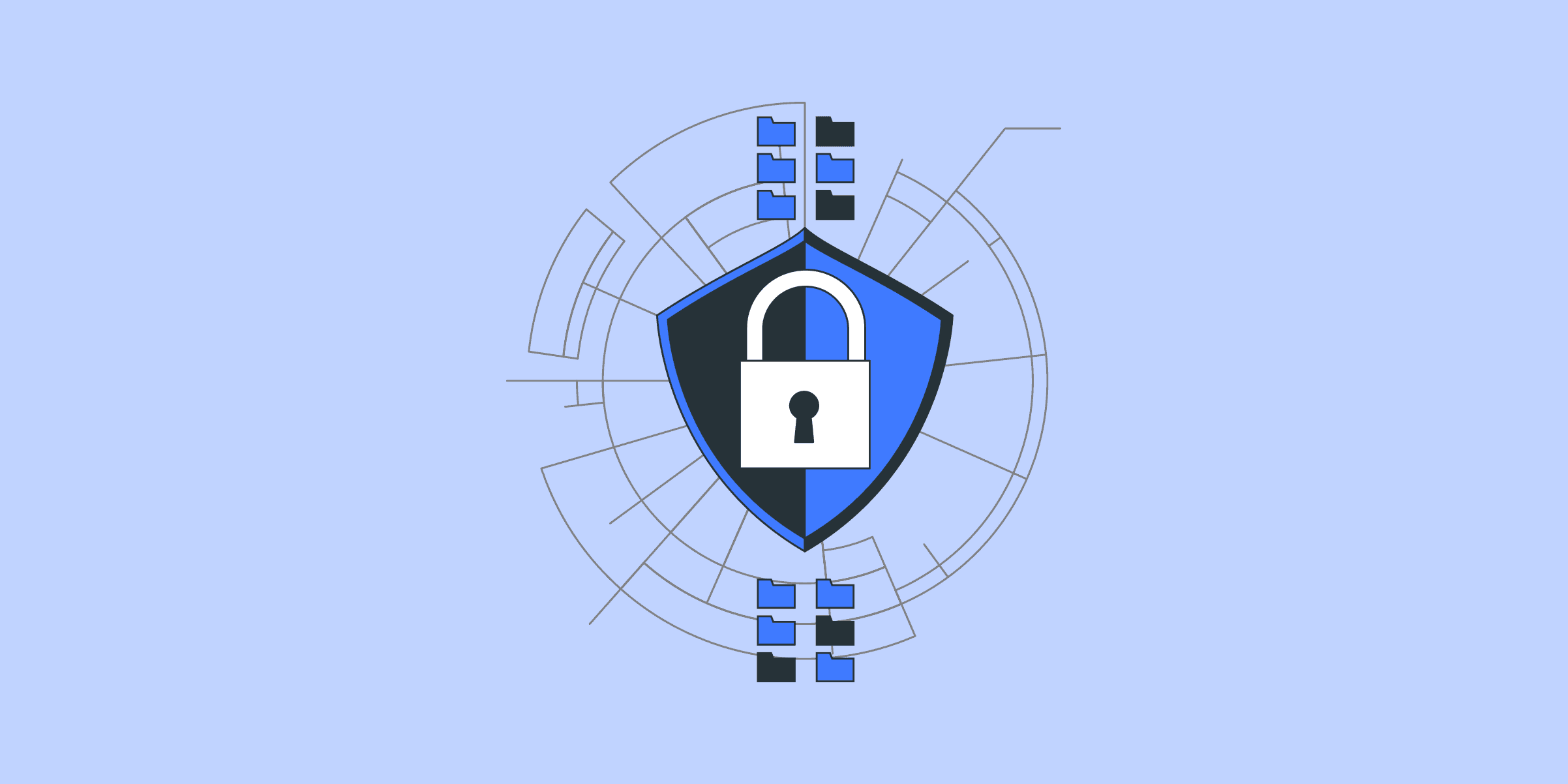
Dedicated Shared Proxies: The Ultimate Solution for Secure and Reliable Web Surfing
Dedicated Shared Proxies: What They Are and Why You Need ThemIf you're running an online business, using dedicated shared proxies is a must. But what exactly are they and why are they important? In this article, we'll explain everything you need to know about dedicated shared proxies, including how they work and why you should use them.What are Dedicated Shared Proxies?First things first: let's define what a dedicated shared proxy is. A dedicated shared proxy is a type of proxy server that is shared among a group of users. Each user is allocated a certain amount of bandwidth from the proxy, which they can use to browse the internet anonymously.The difference between a dedicated shared proxy and a regular shared proxy is that in a dedicated shared proxy, each user is assigned their own dedicated IP address. This means that your online activities are completely private and cannot be traced back to you.How do Dedicated Shared Proxies Work?When you use a dedicated shared proxy, your online activities are routed through the proxy server. This means that the websites you visit see the IP address of the proxy server instead of your own IP address. This makes it impossible for the websites to track your online activities or identify your location.In addition to anonymity, dedicated shared proxies also offer other benefits. They can improve your internet speed by caching frequently accessed websites, and they can also provide access to geo-restricted content.Why You Need Dedicated Shared ProxiesNow that you know what dedicated shared proxies are and how they work, let's talk about why you need them. Here are some of the main reasons:1. Anonymity: Using a dedicated shared proxy ensures that your online activities cannot be traced back to you. This is especially important if you're doing any kind of sensitive work online.2. Security: Dedicated shared proxies provide an extra layer of security by masking your IP address. This makes it more difficult for hackers to target you.3. Speed: By caching frequently accessed websites, dedicated shared proxies can improve your internet speed.4. Access to Geo-Restricted Content: If you're traveling or living in a country where certain websites are blocked, a dedicated shared proxy can give you access to that content.In conclusion, if you're running an online business or need to ensure online privacy and security, using a dedicated shared proxy is essential. By masking your IP address and providing increased security, speed, and access to geo-restricted content, dedicated shared proxies can help you succeed online.

Defining and Unraveling the Scope of Digital Marketing
Introduction: In today's digital-driven era, understanding the essence and range of digital marketing is paramount for businesses aiming to thrive. This dynamic interface of brands, consumers, and technology provides a transformative pathway for business communication and operations. What is Digital Marketing?Digital marketing refers to the strategic utilization of online platforms and tools to promote, advertise, and communicate about products, services, or brands. It's not merely about having an online presence, but about crafting meaningful interactions, ensuring visibility, and converting online engagements into tangible results. Key Elements of Digital Marketing:1. Search Engine Optimization (SEO): A methodology aimed at enhancing online content's visibility through organic search engine results.2. Content Marketing: The art of creating and disseminating relevant content designed to attract and engage a defined audience.3. Social Media Marketing: The practice of promoting products, services, or brands through social media channels.4. Email Marketing: A direct line of communication with potential and existing customers using curated email content.5. Mobile Marketing: A strategy focused on reaching the audience through their smartphones, tablets, and other mobile devices.6. Online Advertising: Paying for space on online platforms to promote or advertise a business, product, or service. The Role of IP Proxies(LIKE.TG) in Digital Marketing:An integral tool often overlooked in the digital marketing toolkit is the IP proxy. Acting as a bridge, an IP proxy provides users an alternative IP address to navigate the internet. 1. Geo-targeting: Marketers can present content or advertisements tailored to specific locations, allowing for testing and optimization across different markets.2. Competitive Analysis: A discrete way for marketers to investigate competitors without divulging their own digital footprint.3. Ad Verification: Ensuring that ads appear as intended in diverse regions, and are not a target of deceitful practices.4. SEO Enhancement: Using proxies to monitor and evaluate search engine rankings across varied locations. The Expansive Scope of Digital Marketing:The sphere of influence of digital marketing isn't confined to just online sales or brand promotions. Its scope is vast and multifaceted: 1. Global Reach: Unlike traditional mediums, digital marketing isn't confined by geographic boundaries.2. Instant Feedback Loop: Real-time data and analytics offer insights, allowing for prompt strategy modifications.3. Cost-effectiveness: Digital strategies can achieve expansive outreach, often at a fraction of traditional advertising costs.4. Personalization: Harnessing data to offer tailor-made experiences to consumers based on their online behaviors.5. Two-way Communication: The interactive nature of digital mediums fosters a dialogue, not just a monologue, with the audience. Potential Careers in Digital Marketing:The digital world's evolving nature continually carves out new roles and responsibilities. From content developers and SEO specialists to online campaign managers, the digital realm offers myriad career opportunities. Conclusion:Digital marketing is not just a buzzword; it's the bedrock of modern business strategies. With its vast scope and dynamic nature, understanding its definition and the possibilities it offers is crucial for success in today's digital landscape. Embracing every facet, from basic concepts to advanced tools like IP proxies, is instrumental for brands looking to make an impactful digital footprint.

Demystifying Datacenter Proxies: Your Complete Guide
IntroductionThe rapid digitalization of our world has made the internet an indispensable resource, but it also brings forth a host of challenges ranging from cybersecurity to data privacy. Whether you're an individual concerned about online anonymity or a business looking to scrape data, datacenter proxies have emerged as a vital tool. This comprehensive guide delves into the nuts and bolts of what datacenter proxies are, the advantages they offer, their limitations, and what to consider when selecting a provider. Armed with this knowledge, you'll be better equipped to make informed decisions tailored to your specific online needs. The Essence of Datacenter Proxies: A Closer Look Datacenter proxies are not merely a gateway to the internet; they are a fortified, specialized conduit that offers multiple layers of utility. Located in highly secure facilities known as datacenters, these proxies are equipped with advanced hardware and software configurations. These attributes provide them with a distinct speed and reliability advantage over residential proxies, which are typically less predictable in their performance. Moreover, datacenter proxies are overseen by experienced network engineers who work round-the-clock to ensure optimal functioning. Because these proxies are privately managed, the level of oversight and maintenance is substantially higher than that of residential proxies, which are generally distributed by ISPs to regular consumers. This meticulous management ensures that datacenter proxies fulfill their primary role with excellence—masking your IP address. This feature enables users to surf the web without revealing their true identity, thereby bypassing geo-restrictions and evading various forms of online surveillance. The Upside of Utilizing Datacenter Proxies: Extended Advantages Fortifying Cybersecurity: Beyond the Basics In today's digital age, cybersecurity is not a luxury; it's a necessity. Datacenter proxies act as an additional barrier between you and potential cyber threats, making it exceedingly difficult for malicious actors to identify or target your system. Think of it as having a digital bodyguard that watches your back while you engage with the online world. These proxies filter the traffic that comes into your network and can be configured to block known harmful sources, further enhancing your security posture. Minimizing Lag and Delays: The Technical Edge Reduced latency is not just a nice-to-have feature; it can be crucial for businesses that rely on real-time data exchange. Whether you are a day trader needing split-second updates or a gamer who can't afford lag, datacenter proxies provide a distinct advantage. They are engineered to route your internet requests via the most efficient pathway, thereby minimizing the time it takes for data packets to travel between the server and your device. This can result in a browsing experience that is not just faster but also smoother. Economic Viability: A Cost-Benefit Analysis Running a business often comes with steep operational costs, particularly when technology is involved. Investing in dedicated servers or Virtual Private Servers (VPS) can strain company resources. Datacenter proxies offer an economical alternative without compromising on performance. They provide shared resources that can be scaled up or down according to need, making them a flexible and budget-friendly option. For businesses, this means having access to high-level resources without the high-level price tag. Ensured Data Encryption: Trust but Verify In an era where data breaches are all too common, the encryption offered by datacenter proxies provides an invaluable layer of protection. They scramble the data packets sent between your device and the server, making it nearly impossible for eavesdroppers to decipher the information. This is especially vital when dealing with sensitive transactions, such as online banking or confidential business communications. With data encryption, you can be assured that your confidential information will remain just that—confidential. Caveats and Limitations: Navigating the Pitfalls The Complexity of IP Management: A Double-Edged SwordManaging multiple IP addresses can be both a boon and a bane when utilizing datacenter proxies. On the positive side, multiple IPs give you an extensive range of options for web scraping, SEO monitoring, and bypassing geo-blocks. However, this benefit comes at the cost of complexity. With more users sharing the same proxy server, the IP pool can quickly become cluttered. IP conflicts can occur, and you may need specialized software or in-depth technical knowledge to manage this effectively. In some cases, poor IP management can even lead to an IP being blacklisted, impacting all users connected to that specific address. Potential for Restricted Bandwidth: The Shared Pie DilemmaIn a shared resource environment, the concept of "the more, the merrier" doesn't always apply—especially when it comes to bandwidth. Since you're sharing server resources with other users, the bandwidth allocated to you may be limited. This can be particularly detrimental if you require high-speed connections for tasks like video streaming or large file transfers. You may encounter slower download and upload speeds, which can compromise the efficiency of your online activities. Dependability Concerns: The Flipside of Shared InfrastructureDatacenter proxies are typically reliable due to the high-quality hardware and 24/7 monitoring they come with. However, they are not immune to service interruptions. Because these services are often shared, a surge in traffic or technical glitches can affect all users connected to a particular server. Scheduled maintenance, although necessary for long-term reliability, can also result in temporary downtimes. A Checklist for Choosing a Datacenter Proxy Provider: Picking the Right Partner Compliance and Security: The Legalities MatterChoosing a provider that strictly adheres to legal frameworks like GDPR isn't just about following the law; it's about ensuring that your data is handled responsibly. Verify that the provider is transparent about its data logging policies, and seek providers that offer end-to-end encryption to protect your data further. Explicit Service Contracts: Read Between the LinesA good Service Level Agreement (SLA) goes beyond just uptime guarantees and response times. It should provide detailed provisions for various scenarios like data breaches, service outages, and planned maintenance. This contract sets the performance benchmarks and expectations, serving as a guiding document should disputes arise. Flexible Pricing Mechanisms: One Size Doesn't Fit AllProviders often offer different pricing plans, ranging from monthly subscriptions to pay-as-you-go options. A monthly subscription might offer cost savings for continuous, high-usage scenarios, while pay-as-you-go can be advantageous for temporary or fluctuating needs. Weigh these options carefully against your specific requirements before making a decision. Focus on Performance: Speed Isn't Everything, But It's a LotIt’s crucial to assess how a provider's capabilities align with your needs. Whether it's the speed of data retrieval for analytics or the consistency of connection for web scraping, evaluate various performance metrics. Benchmarks like latency, bandwidth, and uptime should match or exceed your specific demands. Accessible Customer Support: Your Safety NetAn efficient and responsive customer service team is vital. Whether you encounter issues during setup or face a sudden service outage, immediate help should be just a call or a click away. Check for 24/7 support and multiple contact channels like chat, email, and phone. Extra Features: The Icing on the CakeWhile core performance and security features are non-negotiable, don’t underestimate the value of additional functionalities. Features such as IP rotation can make web scraping more efficient, and bandwidth throttling options could be beneficial for controlling network traffic. Some providers also offer dedicated IP addresses that give you a stable and private internet connection. Feedback from the User Community: The Power of Collective ExperienceNo amount of marketing can replace genuine user feedback. Reviews on third-party websites, forums, and social media platforms can provide valuable insights into a provider's actual performance and customer service. Learn from the experiences of others to make an informed decision. By understanding both the benefits and limitations of datacenter proxies, and carefully evaluating potential providers(LIKE.TG Provide Static Residential ISP Proxies), you can make a more informed decision that aligns with your specific needs and requirements. ConclusionDatacenter proxies offer more than just a passage to the internet; they provide a layer of security, speed, and anonymity that is increasingly crucial in today's digital landscape. However, like any tool, they come with their own set of challenges and limitations. Knowing how to navigate these challenges is key to leveraging their full potential. This guide aimed to equip you with the foundational knowledge and critical insights needed to make an informed choice of a datacenter proxy provider. As you proceed, remember that your needs are unique and thus, require a tailored solution. Take into consideration not just the features but also the reliability, compliance, and extra functionalities that a provider offers. User reviews and community feedback can provide additional, invaluable insights. Ultimately, the choice you make will play a pivotal role in shaping your online experiences, making it all the more important to choose wisely.

Demystifying Trainers Proxy: The Key to Seamless Sneaker Copping
Title: How Trainers Proxy Can Boost Your SEO PerformanceIntroduction:In the world of SEO, staying ahead of the competition is crucial. One effective way to gain a competitive edge is by utilizing trainers proxy. This powerful tool can significantly enhance your SEO performance by providing various benefits. In this blog post, we will explore what trainers proxy is and how it can boost your SEO efforts.What is Trainers Proxy?Trainers proxy refers to a type of proxy server that is specifically designed for SEO professionals and marketers. It allows users to browse the internet anonymously through a secure connection, masking their IP address and location. This proxy acts as an intermediary between your computer and the websites you visit, ensuring your online activities remain private and protected.Advantages of Trainers Proxy:1. Enhances SEO Research:Trainers proxy enables you to conduct extensive SEO research without revealing your identity. By utilizing different IP addresses and locations, you can gather competitor data, analyze search engine rankings, and track keyword performance without raising any suspicion.2. Uninterrupted Data Scraping:Data scraping is an essential part of SEO analysis. However, some websites have measures in place to prevent scraping activities. Trainers proxy overcomes this obstacle by rotating IP addresses, allowing you to scrape data consistently and efficiently. This ensures you have access to accurate and up-to-date information for your SEO campaigns.3. Geo-targeted SEO Strategies:To effectively target specific regions or markets, leveraging trainers proxy is essential. By simulating your presence from different locations, you can conduct localized keyword research and optimize your website accordingly. This enables you to implement targeted SEO strategies that resonate with your desired audience, resulting in higher search engine rankings and increased website traffic.4. Competitor Analysis:Staying one step ahead of your competitors is crucial in SEO. Trainers proxy allows you to analyze your competitors' websites and marketing strategies without them knowing. By tracking their keyword rankings, studying their backlink profiles, and monitoring their content strategies, you can gain valuable insights and adjust your own SEO tactics accordingly.5. Protects Your Online Reputation:In the competitive SEO landscape, it's essential to protect your online reputation. Trainers proxy ensures that your website and online activities remain secure and anonymous. It prevents search engines or competitors from tracing your SEO efforts back to you, safeguarding your professional reputation and maintaining a level playing field.Conclusion:Trainers proxy offers numerous advantages for SEO professionals and marketers. By utilizing this powerful tool, you can conduct in-depth research, scrape data, implement geo-targeted strategies, analyze competitors, and protect your online reputation. Incorporating trainers proxy into your SEO workflow can significantly boost your performance, helping you stay ahead of the competition and achieve desired search engine rankings. So, don't overlook the potential of trainers proxy and take your SEO efforts to new heights!

Details of LIKE.TG COIN function
Recently, many of our users have given us some feedback that some of the payment methods we currently display have problems with limiting the amount of money, so we have come up with LIKE.TG COIN, which allow you to save enough money in advance and use LIKE.TG COIN to make payments when you need to buy a proxy plan.1. How do I top up my LIKE.TG COIN? First log in to your LIKE.TG account, in the Dashboard - Account - LIKE.TG COIN click the Recharge button to save value; you can also directly click LIKE.TG COIN in the left navigation bar of the Dashboard to save value. 2. How do I use the LIKE.TG COIN purchase proxy plan? On the LIKE.TG Proxy Pricing page, select the LIKE.TG Proxy Plan you want, and select LIKE.TG COIN to pay for it at the time of purchase.3. How can I check my LIKE.TG COIN stored value record and the record of purchasing proxy plan? In the Dashboard - LIKE.TG COIN, you can check the stored value history and purchase history. 4. How can I check the remaining balance in my LIKE.TG COIN? You can check your remaining balance in the LIKE.TG COIN in the dashboard; you can also see your remaining balance when using the LIKE.TG COIN for purchasing proxy plan.5. What are Points used for? Now when you buy an proxy plan or save the value of LIKE.TG COIN balance will be given a certain amount of bonus points, we will launch a series of member activities such as bonus points mall, bonus points redemption, bonus points lottery, please look forward to it!

Developing a Cyber Resilience Strategy
Introduction In today's digitally-driven business environment, organizations have become highly dependent on technology to carry out critical operations and deliver key services. However, this reliance also introduces significant cyber risks that can lead to costly disruptions from cyberattacks, technology failures, and other incidents. Developing cyber resilience has become an imperative for organizations to sustain business in the face of these growing threats. Cyber resilience refers to an organization's ability to continuously deliver essential services and rapidly recover from disruptions, regardless of the cause. Constructing robust cyber resilience requires a systemic strategy spanning people, processes, and technologies across the enterprise. This article provides in-depth guidance on formulating a cyber resilience strategy by outlining its importance, key elements, organizational considerations, and technical measures. Following the approaches presented will enable organizations to build the cyber resilience needed to maintain operations through inevitable technology disruptions. Why is Cyber Resilience Important? Cyber resilience provides major strategic and operational benefits for organizations: - Minimizes business disruption and financial losses from security incidents - By building resilience, organizations can continue operations and limit revenue losses, recovery costs, and reputational damage from cyberattacks. - Enables quick detection, response to, and recovery from attacks - Resilience capabilities like response plans, backups, and failover mechanisms allow rapid reaction to and recovery from incidents. - Helps meet legal, regulatory and customer expectations - Regulators and customers expect resilience against cyber risks. Resilience demonstrates security responsibility. - Gains competitive advantage and stakeholder trust - Resilient organizations are seen as more reliable and secure partners, gaining an edge over competitors. Elements of a Cyber Resilience Strategy A robust cyber resilience strategy requires coordinated efforts across several key domains: - Asset Management - Catalog and prioritize critical business systems, applications, and data. Focus protections on these "crown jewels" to sustain the most important operations. - Risk Management - Conduct assessments to comprehensively identify threats, vulnerabilities, and potential business impacts. Update assessments regularly to address changing business needs and new threats. - Access Controls - Limit access to systems, data, and resources through strict least-privilege and need-to-know policies to prevent unauthorized changes that reduce resilience. - Data Protection - Implement resilient data backup, redundancy, and encryption to ensure availability of information assets even if some systems are compromised. - Incident Response - Develop, regularly test, and drill cyber incident response plans to enable quick detection, analysis, containment, eradication, and recovery from attacks before they become debilitating. - Business Continuity - Define policies and procedures to maintain essential functions during disruptions. Address dependencies between systems and business processes and define alternate operating procedures. Building Organizational Resilience Beyond technology capabilities, organization-wide resilience requires: - Skilled cyber resilience team with training in relevant methodologies - Dedicate staff trained in cyber resilience, business continuity, disaster recovery, and incident response methodologies to manage programs. - Ongoing testing, training, and improvement of response processes - Test response processes through simulations across resilience teams to validate effectiveness and identify gaps. Provide regular training to maintain readiness. - Incorporating resilience activities into core business processes - Make resilience a shared responsibility across the organization by integrating relevant activities into operational processes rather than siloed one-off compliance efforts. - Executive oversight and governance of resilience programs - Maintain executive sponsorship and oversight of resilience to ensure alignment with business needs and risk tolerances. Incorporate resilience KPIs into risk reporting. Enhancing Technical Cyber Resilience Critical technical measures to enhance cyber resilience include: - Architecting systems for high availability and elasticity - Engineer redundancy, failover capabilities, and elastic resource scaling into systems to sustain operations through disruptions. - Implementing defense-in-depth protections and security automation - Layer controls including firewalls, access management, micro-segmentation, endpoint security for comprehensive protection. Automate threat detection, investigation and response. - Adopting a zero trust approach to access management - Enforce least-privilege access and strictly validate user identities and authorization continuously using a zero trust model before allowing any access. - Leveraging cloud and virtualization for resilient infrastructure - Take advantage of cloud flexibility and virtualization to quickly provision, failover, and scale infrastructure to maintain capacity and availability. Conclusion Developing enterprise-wide cyber resilience is crucial for organizations to sustain delivery of critical services and business operations in the face of rising cyber risks. By taking a systemic and strategic approach, organizations can implement coordinated people, process, and technology capabilities to detect, absorb, adapt to, and rapidly recover from cyberattacks and technology disruptions. Executive oversight, continuous adaptation to the changing risk landscape, and business integration are vital for the success and longevity of cyber resilience programs. Organizations that invest in building robust cyber resilience will gain a distinct competitive advantage and stakeholder trust. In today's climate of digital disruption, cyber resilience is becoming a prerequisite for organizational survival.

Differences and Advantages and Disadvantages of Dynamic and Static Residential Proxies
Residential proxies are increasingly being used by people to improve their internet experience. They can hide user's IP address, mask their geographical location, and help them to access websites or services that might otherwise be blocked or censored. However, there are two main types of residential proxies - dynamic and static. In this article, we will discuss the differences and advantages and disadvantages of each.What are Dynamic Residential Proxies?Dynamic residential proxies are IP addresses that change dynamically when a user reconnects to the internet. They provide users with extra anonymity and are usually provided by internet service providers (ISPs). This type of residential proxy is useful for individuals who require more secure internet connections, such as those operating businesses or using public WiFi networks.What are the Advantages of Dynamic Residential Proxies?One of the main advantages of dynamic residential proxies is their ability to hide user's real IP address. This anonymity helps protect users from being targeted by online threats such as hacking, identity theft, and online harassment. Additionally, dynamic residential proxies are often used by individuals who wish to access content that might be blocked or restricted in their geographical location.What are the Disadvantages of Dynamic Residential Proxies?Although dynamic residential proxies provide a high level of anonymity, they do come with some drawbacks. One of the main disadvantages is that they can be less reliable than static residential proxies, as the IP address changes each time the user reconnects to the internet. This can cause issues with accessing certain websites or services that require a static IP address. Another disadvantage is that using dynamic residential proxies can be more expensive, as users need to sign up for additional services or purchase a dedicated IP address.What are Static Residential Proxies?Static residential proxies are IP addresses that remain constant for a particular user. They provide users with a more stable and reliable internet connection and are often used for specific purposes such as website building, server management, or account creation.What are the Advantages of Static Residential Proxies?One of the main advantages of static residential proxies is their reliability. With a static IP address, users can access their preferred websites or services with ease and without worrying about IP address changes. Another advantage is that they are cheaper than dynamic residential proxies, as they are typically included in the user's internet package.What are the Disadvantages of Static Residential Proxies?Although static residential proxies are generally more reliable and cheaper than dynamic residential proxies, they do come with some drawbacks. One of the main disadvantages is that they can limit users' access to certain websites or services, especially those that require dynamic IP addresses. Additionally, static residential proxies can be more difficult to configure and manage compared to dynamic residential proxies, as they do not automatically change IP addresses.Both dynamic and static residential proxies provide users with the ability to hide their real IP address and access restricted content. However, they each have their advantages and disadvantages. If you require a more reliable and stable internet connection, static residential proxies might be the better option. On the other hand, if you are looking for greater anonymity and the ability to access restricted content, dynamic residential proxies could be more suitable. Ultimately, it is up to each individual to decide which type of residential proxy best meets their specific needs.
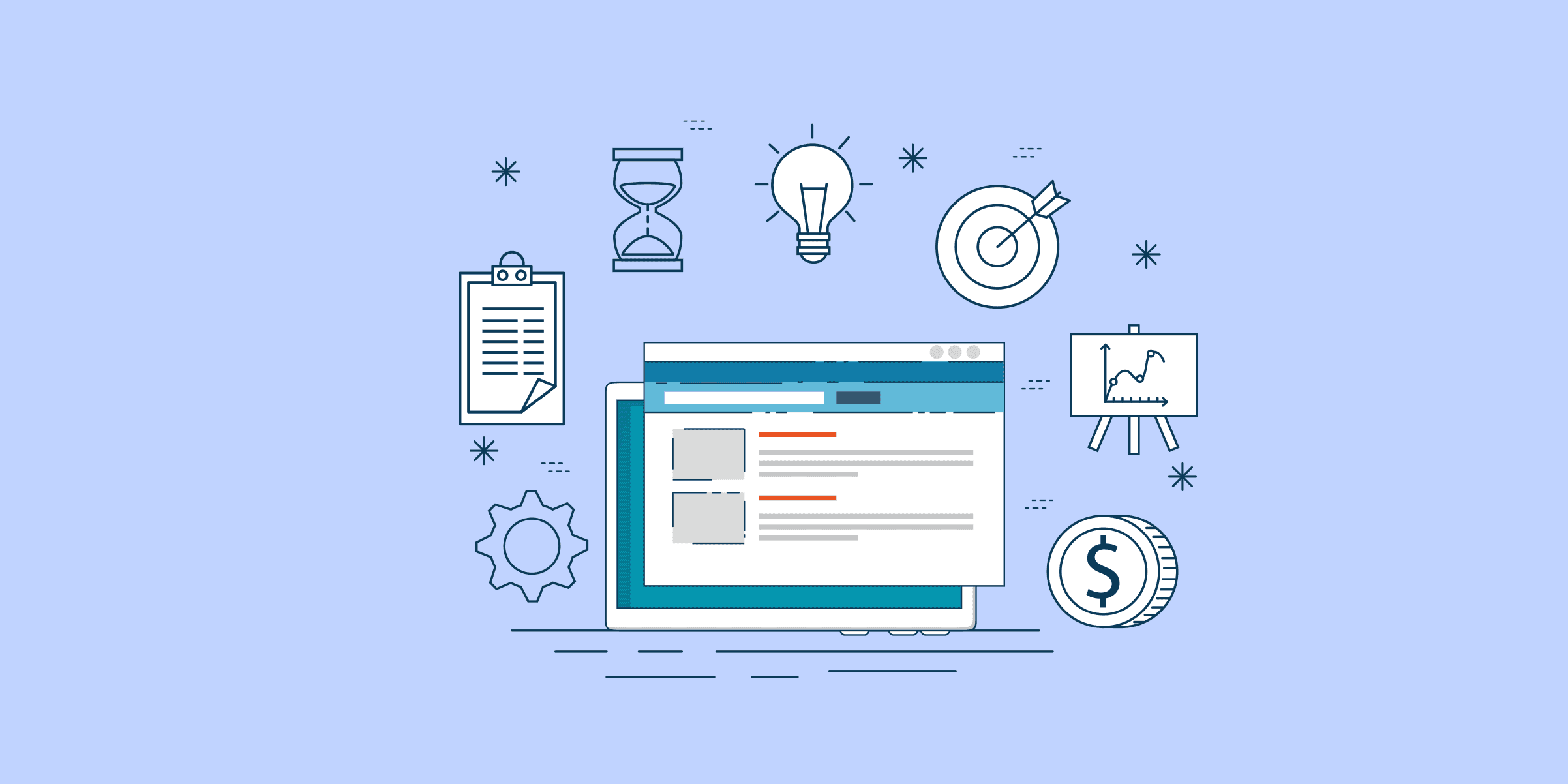
Differences Between Static ISP and Dedicated Data Center: A Guide for Enterprise Network Infrastructure Choices
In today's data-driven business environment, selecting the right network infrastructure is crucial for operational efficiency and security. Static Internet Service Providers (ISPs) and Dedicated Data Centers are two common solutions, each with distinct purposes, functions, and advantages. This article explores the differences between these two options to help enterprises make more informed decisions.1. Static ISP (Static Internet Service Provider)Definition of Static ISPA Static ISP provides internet services with a fixed IP address. Unlike dynamic IP addresses, static IP addresses do not change with each connection, making them advantageous in many applications, especially where stable connections and remote access are needed.Advantages of Static ISPFixed IP Address: Ideal for remote access to devices and services such as web hosting, VPN connections, and remote desktop applications. This ensures consistent address access every time, simplifying management and access.High Availability: Static IPs usually come with more stable connections and lower latency, suitable for businesses that demand high-quality network connectivity.Ease of Setup and Management: Fixed IP addresses simplify the setup and management of network devices, particularly when frequent network configurations are needed.Limitations of Static ISPSecurity Risks: Fixed IP addresses are more susceptible to hacking, requiring additional security measures.Higher Cost: Static IP services typically cost more compared to dynamic IP services.2. Dedicated Data CenterDefinition of Dedicated Data CenterA Dedicated Data Center refers to data center services provided exclusively to a single enterprise or user, with no sharing of servers, storage, network resources, or physical facilities with others.Advantages of Dedicated Data CenterExclusive Resources: Enterprises have access to all computing and storage resources without sharing, ensuring performance and stability.High Security: Dedicated data centers allow complete control over security measures, including firewalls, encryption, and access control, meeting stringent security and compliance requirements.Scalability and Flexibility: Dedicated data centers can scale infrastructure according to enterprise needs without migration or service interruptions.Professional Support: Often accompanied by professional technical support and maintenance services to ensure efficient data center operations.Limitations of Dedicated Data CenterHigh Initial Cost: Establishing and maintaining a dedicated data center requires significant upfront investment.Operational Complexity: Managing and operating a dedicated data center requires specialized technical knowledge and resources.Main Differences Between Static ISP and Dedicated Data CenterPurpose and Application: Static ISPs primarily provide internet connections with fixed IP addresses, suitable for applications requiring stable external access. Dedicated Data Centers, on the other hand, offer comprehensive IT infrastructure, ideal for enterprise applications needing high performance, exclusive resources, and high security.Resource Allocation: Static ISPs provide shared resources with only the fixed IP address being exclusive, while Dedicated Data Centers offer entirely exclusive resources with no sharing.Security: Static ISPs require enterprises to manage their network security, whereas Dedicated Data Centers provide higher security control and measures.Cost Structure: The cost of a Static ISP mainly comes from subscription fees for fixed IP services, whereas Dedicated Data Centers include high costs for infrastructure construction, maintenance, and operation.ConclusionStatic ISPs and Dedicated Data Centers each have their own advantages and suitable scenarios. Enterprises should evaluate their business needs, budget, and technical capabilities when choosing between them. If a stable internet connection and fixed IP address are required, a Static ISP is a good choice. For high-performance computing, exclusive resources, and high security needs, a Dedicated Data Center offers a comprehensive solution. Understanding the differences between these options can help enterprises better plan and optimize their network infrastructure to achieve business goals.

Digital Marketing Mastery: Navigating Social Media Platforms and Modern Strategies
Introduction:The digital age has redefined marketing dynamics, with social media platforms becoming the new frontier for brands seeking visibility, engagement, and growth. As these platforms evolve, so do the strategies to leverage them effectively. In this comprehensive guide, we'll delve into the nuances of each major platform, explore the importance of maintaining professionalism, crafting a cohesive brand identity, generating impactful content, and harnessing newer trends like live streaming and collaborative marketing. Whether you're a budding entrepreneur or an established brand, understanding these platform dynamics is crucial to navigate the digital seas successfully. Diving into Platform Dynamics In the expansive realm of digital networking, today's scene is dominated by several iconic platforms. Each platform, a universe unto itself, brings a distinct flavor and offers diverse capabilities: - Facebook: Often seen as the granddaddy of social media, Facebook wears the crown of community-building. Its vast user base is testament to its universal appeal. Beyond personal connections, it's a melting pot of diverse groups—from hobby clubs to business communities. For brands, Facebook is an arena where they can not only advertise but also cultivate deep-rooted relationships with their target audiences. Features such as Facebook Groups, Live Streaming, and Marketplace allow brands to engage, sell, and foster loyalty among users. - Instagram: Instagram is where artistry meets life. A platform dominated by visuals—photos, stories, and reels—it offers brands an unmatched canvas to tell their stories. Whether it's a curated post of a product, behind-the-scenes stories, or interactive polls, Instagram ensures that brands can engage audiences in dynamic ways. The introduction of IGTV and Shopping features has further empowered brands to showcase and sell seamlessly. - YouTube: The undisputed king of video content, YouTube is the go-to platform for any brand seeking to establish a foothold in the world of video marketing. From tutorials, reviews, to vlogs, it accommodates diverse video formats. Brands can harness YouTube not just for advertising but also for creating a dedicated channel of content, thus positioning themselves as industry experts and thought leaders. - Twitter: If social media platforms were news outlets, Twitter would be the breaking news channel. It's where real-time events unfold, be it global happenings or the latest buzz in pop culture. For brands, Twitter is the space for swift interactions, feedback collection, and instant communication. Its brevity is its strength, ensuring that messages are crisp, concise, and immediate. - LinkedIn: No longer just a job-seeking platform, LinkedIn has metamorphosed into the de facto space for professional networking and B2B marketing. Brands can position themselves as industry leaders through articles, posts, and webinars. With features like LinkedIn Learning and Slideshare, they can also provide value to users, fostering stronger professional bonds. - Pinterest: Pinterest is the dreamboard of the internet. It's where ideas take shape, inspirations get pinned, and aspirations are visualized. For brands, especially those in the lifestyle, fashion, home decor, or DIY sectors, Pinterest is a goldmine. It's a platform where they can not only showcase products but also drive a significant amount of traffic to their websites. Maintaining Professionalism in the Digital Realm While social media is a treasure trove of opportunities, it's also fraught with challenges. The digital space, with its anonymity and speed, can sometimes be a double-edged sword. One misplaced comment, an inappropriate post, or even a misinterpreted joke can escalate into a PR nightmare. To navigate this intricate web, a well-defined social media policy becomes the compass. It's not merely a set of rules but a guiding doctrine that outlines how a brand should represent itself online. It covers aspects ranging from the tone of communication, handling of negative feedback, to protocols for crisis management. A comprehensive policy ensures that all team members, whether they're in marketing, sales, or customer support, are on the same page. They understand the brand's digital persona and how to maintain its integrity. Such a policy also acts as a safeguard, helping brands swiftly and effectively handle any digital skirmishes, and ensuring that their online reputation remains not only untarnished but also positively radiant. Crafting a Cohesive Brand Identity In the vast digital arena, where countless brands vie for attention, a consistent and cohesive brand identity is not a luxury—it's a necessity. Establishing this identity goes beyond surface aesthetics: - Voice and Tone: Just as individuals have unique ways of speaking and expressing, so should brands. Whether it's formal and professional, quirky and playful, or empathetic and nurturing, your brand's voice should resonate with your target audience and remain consistent across platforms. This voice, coupled with a consistent tone—be it humorous, serious, or inspirational—helps users instantly identify your brand amidst the online noise. - Visual Aesthetics: While logos and color palettes are essential, the visual narrative extends further. It encompasses the style of imagery used, the design of infographics, the layout of posts, and even the filters applied to photographs. When users scroll through their feeds, they should be able to spot your content even before they see your brand's name, simply by its distinct visual identity. - Unique Selling Proposition (USP): Amidst myriad competitors, what sets your brand apart? It could be your innovative products, exceptional customer service, commitment to sustainability, or any other unique attribute. Clearly conveying and consistently emphasizing your USP across digital platforms ensures that audiences know exactly what you stand for and why they should engage with you. Content: The Heartbeat of Social Media Social media, at its core, thrives on content. But in this age of information overload, mere volume doesn't cut it: - Audience-Centric Planning: A content strategy should start with the audience. Who are they? What interests them? What challenges do they face? By answering these questions, brands can create content that genuinely resonates. - Value-Driven Posts: Every post should serve a purpose. Whether it's a how-to video, a thought-provoking article, or a heartwarming story, content should either educate, entertain, or evoke emotion. The aim is not just to fill a content calendar but to add tangible value to the audience's day. - Originality and Authenticity: Reposting industry news or piggybacking on trends has its place, but true engagement stems from original content. When brands share their stories, insights, or innovations, it fosters a genuine connection, turning casual followers into loyal brand advocates. Strategic Analysis and Insights In the world of digital marketing, gut feelings give way to hard data: - Deciphering Metrics: Social media platforms come equipped with a plethora of analytics tools. These tools, when used effectively, offer insights into everything—from which content types are most popular and what times of day yield the highest engagement, to the demographic details of the audience. - Refining Strategy: Data, in isolation, is just numbers. The magic happens when brands use these insights to refine their approach. Maybe those fun-filled Friday posts get more engagement than serious Monday ones? Or perhaps video content outperforms text? Continuously assessing and adapting ensures that brands remain relevant and resonant. - Efficient Resource Allocation: Insights also guide budgeting decisions. By understanding which campaigns yield the best ROI, or which platforms garner the most engagement, brands can allocate resources—be it time, money, or manpower—more efficiently, ensuring maximum impact for every effort. Leveraging Collaborative Marketing As the digital era evolves, so too does the power dynamic between brands and their audiences. The rise of influencers and thought leaders has reshaped the marketing landscape, turning individual voices into marketing megaphones: - The Authenticity Factor: Traditional advertisements often lack the personal touch that influencers bring. When an influencer shares a product or experience, it comes across as a genuine recommendation rather than a sales pitch. This authenticity can significantly enhance brand trust and user loyalty. - Targeted Outreach: Influencers often have niche audiences. Whether it's fashion, tech, travel, or any other domain, collaborating with the right influencer ensures that the brand message reaches a highly relevant audience, optimizing engagement and conversion rates. - Dynamic Content Creation: Influencers are content creators at heart. They bring fresh perspectives and innovative approaches to showcasing products or services, often crafting content that's both relatable and share-worthy. - Building Long-term Relationships: Successful collaborative marketing isn’t about one-off posts. It’s about building lasting relationships with influencers, turning them into brand ambassadors who champion the brand ethos and values over time. The Live Streaming Revolution Live streaming isn't just another marketing tactic; it's a paradigm shift. By providing real-time experiences, brands bridge the digital divide, forging more profound and more immediate connections with their audience: - Real-time Engagement: Unlike pre-recorded videos or posts, live streaming fosters two-way communication. Viewers can ask questions, share feedback, and interact directly with brands, enhancing the engagement quotient. - Building Brand Transparency: By showcasing unfiltered moments, be it the hustle-bustle of an event or the making of a product, live streaming demystifies brands, highlighting their human side and bolstering trust. - Event Amplification: Physical events have geographical limitations, but when coupled with live streaming, their reach becomes global. Product launches, conferences, or workshops can now have a worldwide audience, maximizing impact and engagement. - Immediate Feedback Loop: Live streaming offers brands an immediate feedback mechanism. Whether launching a new product or testing a concept, real-time reactions from viewers provide invaluable insights, helping brands adapt and refine their offerings. Harnessing the power of live streaming and collaborative marketing requires brands to stay updated, adaptable, and audience-centric. But when done right, these strategies can transform brand narratives, creating lasting impressions in the digital space. Conclusion:The world of digital marketing is ever-evolving, with platforms and strategies constantly adapting to the changing needs and behaviors of users. Mastering these platforms, understanding their unique offerings, and tailoring strategies to each, is no longer optional but a necessity for brands seeking significant digital presence. By focusing on authenticity, continuous learning, and audience engagement, brands can not only stay relevant but also lead the narrative in their respective industries. As we move forward in the digital age, it's the brands that embrace change, prioritize their audience, and remain consistent in their messaging that will truly stand out and make a lasting impact.

Digital Mastery: Unraveling the Pinnacle Strategies of Modern Marketing
Navigating the Digital Landscape: An Exploration of Modern Marketing Tactics The digital age has ushered in a myriad of new marketing strategies, each tailored to capture the ever-evolving nature of online consumer behavior. From the immediate impact of a well-placed PPC ad to the sustained benefits of comprehensive SEO efforts, modern businesses are finding a rich tapestry of tactics to connect with their audience. This article delves deep into the powerhouse strategies that are shaping the marketing narratives of today's most successful businesses. The Dual Forces: PPC & SEO Pay-Per-Click (PPC): PPC, or Pay-Per-Click, stands as one of the pillars of modern digital marketing. It operates on a simple mechanism: advertisers pay a fee each time their ad gets clicked. This is a departure from traditional mediums like television or radio where expenses can balloon without any guarantee of engagement. Key advantages of PPC include: Immediate Visibility: Once a PPC campaign is live, your advertisements can achieve top positions on search results, providing immediate visibility to your target audience. Budget Flexibility: You can set a daily budget, ensuring you don’t overspend, and adjust it based on the results you're seeing. Targeting Options: Beyond basic demographic targeting, PPC allows for location targeting, device targeting, and even targeting based on past online behaviors. Search Engine Optimization (SEO): SEO is the art and science of improving a website's visibility on search engines, specifically within the organic (unpaid) listings. Contrasting with continuous financial commitments associated with traditional ads, SEO investments yield long-lasting benefits. The power of SEO lies in: Sustainable Results: Once you achieve a high rank for a keyword, you can maintain that position over time with minimal ongoing costs. Increased Credibility: Websites that rank high on search engines are often perceived as more credible and authoritative in their field. Improved User Experience: SEO often involves optimizing website speed, mobile responsiveness, and content quality, all of which contribute to a better user experience. Social Media Giants: The Case of Facebook & Twitter Organic Reach: While social media platforms are increasingly promoting paid advertisements, there's still immense value in organic posts. Engaging, high-quality content can virally spread, yielding: Community Building: Consistent organic posts allow businesses to foster a loyal online community, which can become brand ambassadors over time. Feedback Loop: Comments, shares, and likes provide immediate feedback, enabling businesses to tweak their strategy. Paid Promotions: These platforms have robust advertising systems in place, allowing businesses to reach targeted demographics precisely. Some of the standout features include: Retargeting: This allows businesses to re-engage visitors who might've interacted with their website but didn't convert. Lookalike Audiences: On platforms like Facebook, you can target users who exhibit similar behaviors and interests as your current customer base, expanding your potential reach. The Quiet Powerhouse: Content Marketing Cost-Effectiveness: Creating impactful content doesn't necessarily mean breaking the bank. The return on investment can be substantial, especially considering: Long Shelf Life: Unlike a TV commercial that airs for a limited time, a well-crafted blog post or video can continue to attract and engage visitors for years. SEO Benefits: High-quality content can improve your website's SEO, leading to increased organic traffic. Building Trust: This isn't just about pushing a product but about establishing a voice of authority in a specific niche. Consider the following: Educate and Inform: Instead of hard selling, content marketing educates, informs, and entertains, leading to better customer relationships. Customer Loyalty: Consistently delivering valuable content can turn casual visitors into loyal customers and brand advocates. Direct Engagement: Email Marketing Measurable Metrics: One of the strongest points in favor of email marketing is the depth of analytics available. Consider: Segmentation: Based on user behavior, businesses can segment their email list and tailor content accordingly, leading to better engagement. A/B Testing: Email platforms allow businesses to test different versions of an email to see which one resonates more with the audience. Cost Savings: Transitioning from traditional mail campaigns to digital emails can result in substantial savings. Notably: Instant Delivery: No waiting period as with traditional mail. Emails reach inboxes within seconds, allowing for timely promotions. Environmentally Friendly: Digital emails reduce the need for paper, contributing to eco-friendly business practices. In conclusion, while every marketing strategy has its place, the adaptability, cost-effectiveness, and precision targeting offered by digital methods make them indispensable in the modern business landscape. Harnessing the Future: The Ascendancy of Digital MarketingToday's marketing world is a blend of traditional wisdom and digital innovation. Yet, it's undeniable that digital strategies are offering businesses unparalleled opportunities for growth, engagement, and return on investment. With the right mix of the tactics explored above, businesses can carve a niche for themselves, leveraging the immense potential of digital platforms. Whether you're a start-up or an established brand, embracing these strategies can be the catalyst for your next phase of success.

Discover the Best Places to Buy a Proxy for Enhanced Online Security
Where to Buy a Proxy: Your Ultimate GuideIn today's digital age, privacy and security have become paramount concerns for internet users. Whether you are an individual browsing the web or a business looking to protect your online assets, using a proxy can be an effective solution. A proxy server acts as an intermediary between your device and the internet, allowing you to browse anonymously and access content that might be restricted in your location. However, finding a reliable proxy provider can be a daunting task. In this blog post, we will explore where to buy a proxy and provide you with valuable insights to make an informed decision.1. Online MarketplacesOnline marketplaces like eBay and Amazon offer a wide range of proxy options. You can find both residential and datacenter proxies from various sellers. However, it is crucial to exercise caution when buying proxies from these platforms. Since anyone can list their products, there is a risk of purchasing low-quality or unreliable proxies. It is recommended to thoroughly research the seller's reputation and check for customer reviews before making a purchase.2. Proxy Service ProvidersProxy service providers are dedicated companies that specialize in selling proxies. These providers often have a range of proxy options to choose from, including shared, semi-dedicated, and dedicated proxies. They typically offer advanced features, such as IP rotation and secure protocols. Some popular proxy service providers include Luminati, Oxylabs, and Smartproxy. By purchasing from a reputable provider, you can ensure the reliability and performance of your proxy.3. Social Media Communities and ForumsSocial media platforms and forums can be a valuable resource when searching for proxy providers. There are dedicated communities where users discuss and share their experiences with different proxy services. Joining these communities can help you gather insights and recommendations from experienced users. Reddit's r/Proxy and Black Hat World's proxy section are two popular forums to start your search. Engage in discussions, ask for recommendations, and learn from the experiences of others.4. Private Proxy NetworksPrivate proxy networks are an excellent option if you require large-scale or enterprise-level proxy solutions. These networks operate their proxies, often with millions of IP addresses across numerous locations. They offer high-performance and reliable proxies suitable for tasks like web scraping, SEO monitoring, and social media management. Trusted private proxy networks include StormProxies, ProxyRack, and ProxyMesh. However, keep in mind that these networks usually come at a higher cost compared to other options.5. Proxy ResellersProxy resellers act as intermediaries between the proxy service providers and the end-users. They purchase proxies in bulk from various providers and sell them to customers at a more affordable price. Some well-known proxy resellers include InstantProxies and BuyProxies. Resellers are a suitable choice for those who want access to high-quality proxies without directly dealing with multiple providers. However, it is essential to verify the reseller's credibility before purchasing to ensure the proxies' quality.When considering where to buy a proxy, there are several factors to keep in mind. Make sure to check the pricing plans, features, and reputation of the provider or reseller. Testimonials or reviews from other users can provide valuable insights into the performance and customer service of the proxy provider. Additionally, consider the type of proxy (residential or datacenter) and the purpose for which you need the proxy.In conclusion, finding a reliable proxy provider is crucial for maintaining online privacy and security. Online marketplaces, proxy service providers, social media communities, private proxy networks, and proxy resellers are some of the places where you can buy a proxy. Take your time to research and compare different options before making a decision. Remember, investing in a high-quality proxy is an investment in your online protection.

Discover the Top 10 Free Proxy Servers to Protect Your Online Privacy
Free Proxy Servers: An Essential Tool for Safe and Secure SurfingIn today's digital age, online security and privacy have become paramount concerns. With cyber threats on the rise, it's crucial to take necessary precautions to protect our personal information while browsing the web. One of the most effective tools to ensure online safety is the use of proxy servers. In this blog post, we will explore the concept of proxy servers and highlight the benefits of using free proxy servers for secure internet surfing.What is a Proxy Server?A proxy server acts as an intermediary between your device and the internet. When you access a website through a proxy server, it serves as a gateway, forwarding your request to the website and returning the response to you. The website you visit only sees the IP address of the proxy server, keeping your real IP address hidden. This anonymity provides an additional layer of security, making it difficult for malicious entities to track your online activities.Why Use Free Proxy Servers?1. Enhanced Privacy: By using a proxy server, you can maintain your anonymity while browsing the web. Your real IP address is masked, which makes it extremely challenging for anyone to trace your online activities back to you. This is particularly useful when accessing websites or platforms that may have content restrictions based on geographical location.2. Bypassing Content Restrictions: Many countries and organizations impose internet censorship and content restrictions. By using a proxy server, you can bypass these restrictions and access blocked websites or content. This can be particularly helpful for individuals living in countries with strict online censorship policies.3. Improved Security: Proxy servers provide an additional layer of security by acting as a barrier between your device and potential threats. They can filter and block malicious websites, preventing malware attacks and reducing risks associated with phishing attempts. They also encrypt your internet traffic, making it more difficult for hackers to intercept sensitive information.4. Faster Browsing Speed: In some cases, proxy servers can improve your browsing speed by caching frequently accessed web pages. When you request a web page, the proxy server retrieves the stored copy instead of making a new request to the destination server, resulting in faster loading times.5. Cost-Effectiveness: Free proxy servers allow you to enjoy the benefits mentioned above without any additional costs. While paid proxy servers may offer more advanced features, free options are often sufficient for basic online security needs.How to Find and Use Free Proxy Servers?There are several websites and online platforms that provide lists of free proxy servers. A simple internet search using keywords like "free proxy servers" will yield numerous results. Once you find a suitable proxy server, you need to configure your device to use it. The process may vary depending on the operating system and browser you are using, but typically involves changing network settings and entering the proxy server's IP address and port number.In conclusion, free proxy servers are an essential tool for safe and secure internet browsing. They offer enhanced privacy, enable bypassing content restrictions, provide improved security, and can even enhance browsing speed. By utilizing these free proxy servers, you can take control of your online safety and enjoy a worry-free internet experience. Stay protected, stay secure!

Distinguishing Static and Rotating Proxies: Understanding the Key Differences
Proxies play a vital role in ensuring online anonymity and security, allowing users to access the web without revealing their true IP addresses. When it comes to proxies, two common types are static proxies and rotating proxies. Each type has its own unique characteristics and use cases. In this blog post, we will delve into the key differences between static and rotating proxies.Static Proxies:Static proxies, as the name suggests, provide users with a fixed IP address that does not change. This means that whenever a user connects to the internet through a static proxy, they will always appear to have the same IP address. Static proxies are ideal for tasks that require consistency, such as web scraping, SEO monitoring, and accessing geo-blocked content.Rotating Proxies:On the other hand, rotating proxies constantly change the IP address assigned to a user. This rotation can occur at set intervals or with each new connection. Rotating proxies are beneficial for tasks that require anonymity and the ability to bypass rate limits or restrictions imposed by websites. They are commonly used for web scraping, social media management, and sneaker botting.Differences:1. IP Address Stability:Static proxies provide a stable and consistent IP address, whereas rotating proxies offer dynamic IP addresses that change periodically.2. Anonymity:Rotating proxies offer better anonymity compared to static proxies, as the frequent IP address changes make it harder to track user activity.3. Performance:Static proxies are faster than rotating proxies, as the connection does not need to be refreshed or changed frequently.4. Use Cases:Static proxies are suitable for tasks that require a fixed IP address, while rotating proxies are more versatile and ideal for activities that demand anonymity and frequent IP address changes.In conclusion Both static and rotating proxies have their own strengths and weaknesses. The choice between the two types depends on the specific requirements of the user and the nature of the tasks at hand. Understanding the differences between static and rotating proxies is crucial for selecting the right proxy type to meet your online browsing and security needs.LIKE.TG.com

Do companies need to use overseas proxies services when conducting competitive analysis?
In today's highly competitive business environment, competitive analysis is crucial for companies to develop effective marketing strategies and product positioning. Through in-depth understanding of competitors' products, prices, promotion strategies and market performance, enterprises can better grasp the market dynamics and industry trends, so as to make informed decisions. And in conducting competitive analysis, overseas proxies services can provide enterprises with important help and advantages. First, what is competitive analysis? Competitive analysis is a market research method designed to evaluate and compare an enterprise's own products or services with those of its competitors. Through competitive analysis, an enterprise can gain a deeper understanding of the strengths and weaknesses of its competitors and reveal the opportunities and threats in the market, so as to formulate more effective business strategies and enhance market competitiveness. Second, the role of overseas proxies services in competitive analysis 1. Access to multi-region data: market demand and competitive situation in different regions may differ. Through overseas proxies services, enterprises can obtain data from different regions to understand the characteristics of the local market and competition, so as to better optimize product positioning and market strategies. 2. Avoid IP blocking: In the process of competitive analysis, frequent visits to competitors' websites and resources may be regarded as malicious crawler behavior, leading to IP address blocking. Using overseas proxy services can help companies disguise themselves as real users and simulate the IP addresses of different regions and audience groups, thus avoiding blocking and ensuring continuous and stable access. 3. Comprehensive understanding of competitors: Overseas proxy service can help enterprises obtain the complete content of competitors' websites, including page layout, product information, pricing strategy, etc.. In addition, information on competitors' advertisements, marketing campaigns and social media can be collected to fully understand competitors' market performance and promotion strategies. 4. Improve the efficiency of data collection: Competitive analysis needs to collect data from multiple channels and sources, and the use of overseas proxy services can simultaneously collect data in multiple regions, greatly improving the efficiency and accuracy of data collection. Third, why do enterprises need to use overseas proxies services for competitive analysis? 1. Global competition: With the development of globalization, the competition scope of enterprises is no longer limited to the local market, but facing competitors from all over the world. The use of overseas proxies services can help enterprises understand the market situation and competitive situation in different regions, so as to better cope with global competition. 2. More comprehensive data sources: Competitive analysis requires comprehensive and accurate data support, and the use of overseas proxies services can help companies obtain more comprehensive and accurate information about competitors, so as to make more informed decisions. 3. Optimize market strategy: Market demand and consumption habits may vary in different regions. By using overseas proxies services for competitor analysis, enterprises can better understand the market characteristics of different regions, so as to optimize their market strategies and product positioning, and improve market competitiveness. 4. Protecting privacy and data security: Competitive analysis may involve personal information of competitors and users, using overseas proxy services can hide the real IP address and protect the privacy and data security of enterprises and users. Summarize Competitive analysis is very important for enterprises' marketing and product positioning. Using overseas proxy service can help enterprises obtain data and information from multiple regions, avoid IP blocking, gain a comprehensive understanding of competitors, improve data collection efficiency, optimize marketing strategies, and better cope with global competition. Therefore, using overseas proxies services is a wise and effective choice when conducting competitive analysis.

Do permanently valid residential ip exist? How to get it?
With the continuous development of the Internet, IP address has become our digital identity in the online world. Whether you are browsing the web, sending emails or conducting online transactions, you need an IP address as a basis for identification and location. However, a question that may arise for many people is: does a permanently valid residential IP address exist? If it exists, how to obtain it? I. What is a residential IP address? First, let's understand what a residential IP address is. In the Internet world, an IP address is a string of numeric identifiers used to identify a device's location on a network. A residential IP address refers to an IP address from a residential network (home network), which is usually assigned to a home user by an internet service provider. In contrast, a data center IP address, which is an IP address provided by a data center, is typically used for servers and large-scale computer clusters. II. Is there a permanently valid residential IP address? From a technical perspective, IP addresses are not permanently valid. In the Internet architecture, IP addresses are finite resources that are allocated to different ISPs and reallocated when needed. As a result, it is not possible for a single IP address to be permanently valid. Whether it is a residential IP address or a data center IP address, it will be assigned and used for a certain period of time. III.How do I get a residential IP address? Obtaining a residential IP address is primarily through your Internet Service Provider (ISP). When you connect to the Internet at home, your ISP assigns an IP address to your home network, which is a residential IP address. Typically, this IP address is automatically assigned each time you reconnect to the Internet. However, if you need to use multiple residential IP addresses, such as for data collection, website testing, or other applications that require geolocation, you may need to seek out some additional methods. One common method is to obtain multiple residential IP addresses through a specialized proxy service provider. These proxy service providers will provide you with multiple residential IP addresses, allowing you to simulate access from different regions. This is very useful in areas such as market research, ad targeting, and data collection. IV. Advantages of Professional Proxy Services Professional proxy service providers can usually provide you with multiple residential IP addresses, which are distributed in different regions to meet your various needs. Through these proxy service providers, you can obtain high-quality and stable residential IP addresses for various online activities. This is valuable for data collection, advertising, social media management, and website testing. When it comes to the Internet and IP addresses, there are many instances where you may want to obtain a permanently valid residential IP address. However, in the real world, IP addresses are a finite resource and they need to be allocated, managed and maintained, so there is no such thing as a truly permanently valid IP address. This is exactly why specialized proxy services have become so important in meeting specific needs. In some cases, you may want to use a particular IP address for a long period of time, such as when visiting a specific website, performing data collection, or conducting online activities. However, due to the nature of the Internet, IP addresses tend to change, especially for home network users. This is due to the fact that internet service providers frequently reassign IP addresses to ensure the security and stability of the network. Although it is not possible to get a permanently valid residential IP address, you can solve this problem with a professional proxy service. A proxy service provider can provide you with stable residential IP addresses that can be rotated according to your needs to ensure that you are able to consistently access specific online resources or perform specific activities. The benefits of using a professional proxy service go beyond obtaining a stable IP address. These services often offer other value-added features such as data encryption, privacy protection and user identity confidentiality. This is especially important for users who need to access content in specific regions, conduct market research, perform social media management, or perform data collection. In addition, specialized proxy services also typically offer multi-region IP addresses, which are useful for simulating access from different geographic locations. You can select residential IP addresses from different regions as needed for more accurate data and location information. Overall, although there is no such thing as a permanently valid residential IP address, you can get a stable, secure and privacy-protected residential IP address through professional proxy services. This provides strong support for your various activities on the Internet and allows you to better fulfill your personal and business needs. When choosing a proxy service provider, be sure to select those with a good reputation and technical support to ensure you get the best proxy experience possible. To summarizeWhile there is no such thing as a permanently valid residential IP address, it is possible to obtain an IP address for your home network through an Internet Service Provider. If you need multiple residential IP addresses for various online activities, you may consider seeking the help of a professional proxy service provider. These proxy service providers can provide you with residential IP addresses in multiple regions for your various location and data collection needs. When choosing a proxy service provider, be sure to select a reputable provider with professional technical support to ensure you have the best proxy experience.

Do you experience Instagram IP blocking?
Instagram, one of the most popular social networking platforms, is widely used for sharing photos and videos. However, many users and businesses often face the issue of their IPs getting blocked on Instagram. Why is Instagram IP ban? One of the main reasons for Instagram IPs getting blocked is due to violating the platform's terms of service. This includes activities such as spamming, using automation tools, posting inappropriate content, engaging in aggressive following/unfollowing, or using bots to artificially inflate engagement metrics. Instagram has strict guidelines in place to ensure a safe and engaging environment for its users, and any violation of these guidelines can result in IP blocks.Another common reason for Instagram IP blocks is excessive activity that triggers the platform's security systems. This can include liking, commenting, or following too many accounts in a short period of time, which can be flagged as suspicious behavior. Instagram's algorithms are designed to detect unusual activity patterns and may temporarily block IPs to prevent spam or bot-related activities.Moreover, using multiple accounts on the same IP address can also trigger Instagram to block the IP. This is particularly common among businesses or social media managers who manage multiple Instagram accounts simultaneously. Instagram may interpret this as a violation of its terms of service and block the IP to prevent misuse of the platform.How to deal with itDon't panic, there are steps you can take to resolve this issue and get back to using the platform smoothly. An IP ban on Instagram can be frustrating, but with some patience and the right approach, you can overcome it.Firstly, This could be due to suspicious activity, violating community guidelines, or using automation tools that go against Instagram's terms of service.The next step is to try and lift the ban on your IP address. You can start by disconnecting from your current Wi-Fi network and switching to a different network, such as mobile data or a public Wi-Fi hotspot. By changing your IP address, you may be able to access Instagram again. Additionally, clearing your browser's cache and cookies can also help reset your connection to the platform.If changing networks doesn't work, you can reach out to Instagram for support.using proxythe benefits of using a proxy for Instagram IP bans.1. Anonymity: By using a proxy, you can mask your real IP address and browse Instagram anonymously. 2. Bypass Restrictions: Proxies allow you to bypass geographical restrictions imposed by Instagram. 3. Improved Security: Proxies encrypt your internet connection, providing an additional layer of security when browsing Instagram.keeping your data safe from potential cyber threats.4. Uninterrupted Access: With a proxy, you can switch between different IP addresses easily, In conclusion, facing an Instagram IP ban can be a temporary setback, but it's not the end of the road. By understanding the reasons behind the ban, taking necessary steps to resolve it, and following Instagram's guidelines, you can regain access to the platform and continue enjoying it without interruptions. Remember, staying informed and compliant is key to maintaining a positive experience on Instagram.
相关产品推荐















